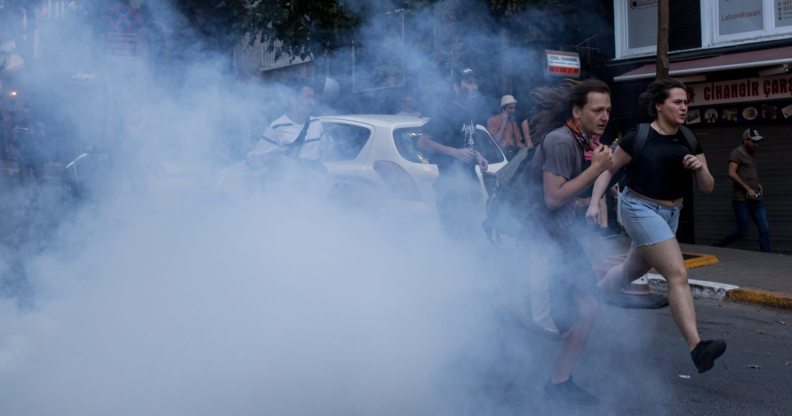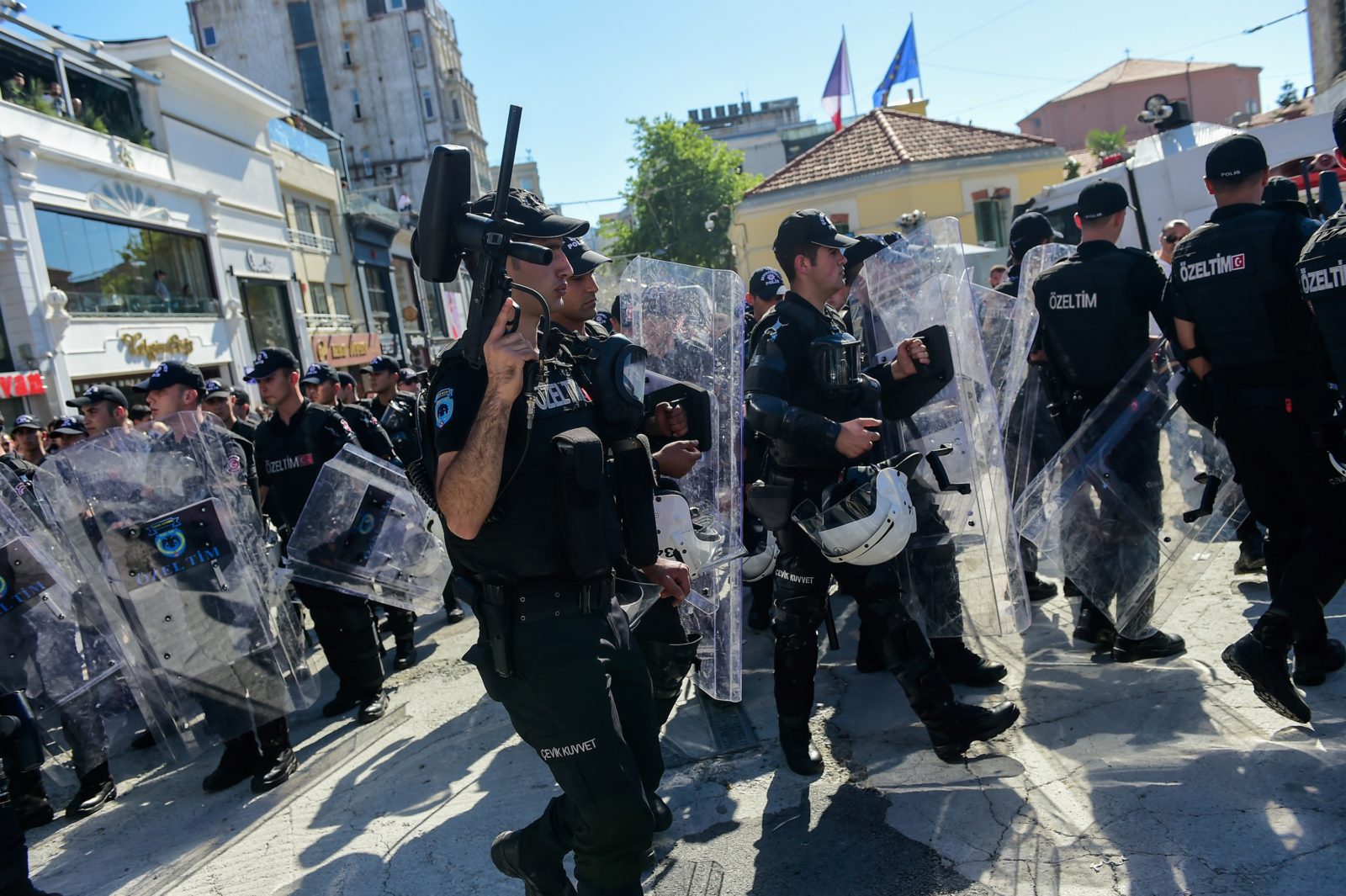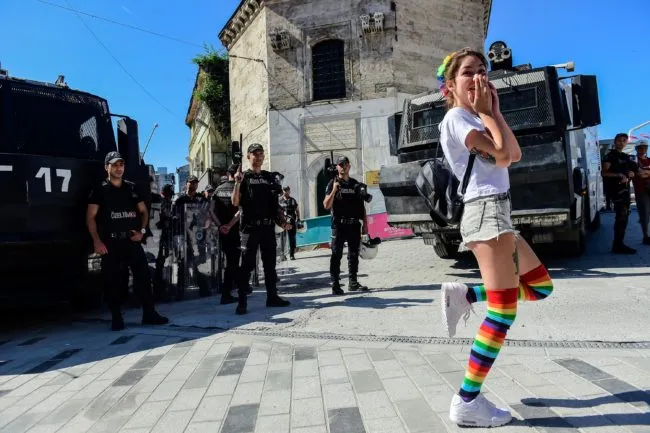UK government won’t condemn violent police attack on Pride parade in Turkey

ISTANBUL, TURKEY – JUNE 25: LGBT supporters run from tear gas fired by police after attempting to march to Taksim Square on June 25, 2017 in Istanbul, Turkey. The 2017 LGBT Pride March was banned by authorities for the third year. Organisers defied the order and people attempted to march to Taksim Square but were met by a heavy police presence and the crowd was dispersed by tear gas and several people were arrested. (Photo by Chris McGrath/Getty Images)
The UK government won’t say if it raised the use of force to break up a Pride march in Turkey with the country’s authorities.
In June, police forces used rubber bullets and dogs to disperse crowds of LGBT activists who had defied an official ban to march at an Istanbul Pride event.
According to observers, police fired rubber bullets at the crowd and also used tear gas in the attack, in an attempt to break up the Pride marchers. Several people were dragged from the crowd and detained.
However, the UK government has declined to say if it even brought up the attack with the authorities in Turkey, which is a key ally in the region.

In response to a question from Lib Dem peer Lord Scriven, a UK Foreign Office minister said: “We are aware of reports that security forces allegedly used plastic bullets against protestors in Istanbul on 25 June following the banning of the Pride Istanbul march by the city authorities.
“We regularly raise with Turkey the need to fully protect fundamental rights, particularly in the areas of freedom of expression and assembly. We also encourage protection of the rights of LGBTI persons, and work closely with Turkish civil society organisations active in this area.
“Our Embassy in Ankara and Consulate in Istanbul were proud to fly the rainbow flag during Turkish Pride Week as a symbol of our support.”
Asked if the attack on the Pride parade had been raised with Turkish authorities, Foreign Office minister Lord Ahmad of Wimbledon did not provide a clear answer.
He said: “We regularly discuss freedom of expression and assembly with the Turkish Government and have made clear our support to the LGBTI community in Turkey, including through our partnering of civil society organisations representing LGBTI issues.
“We will continue to highlight the importance of these issues in our bilateral contacts.”

(Photos by BULENT KILIC/AFP/Getty Images)
The government’s responses stand in stark contrast to answers condemning “abhorrent” homophobic persecution in Chechnya, which were issued just days later.
Addressing a question on Chechnya, Lord Ahmad condemned the “hostile environment for members of the LGBT community” in the Russian region.
He said: “Statements attributed to the authorities in Chechnya, implying that such treatment towards LGBT people is acceptable, are particularly abhorrent and could incite further violence against LGBT persons.”
It has been legal to be gay in Turkey for more than 150 years, but homosexuality still has a strong social taboo, and in recent years the LGBT community has faced violent attacks and systematic harassment.

